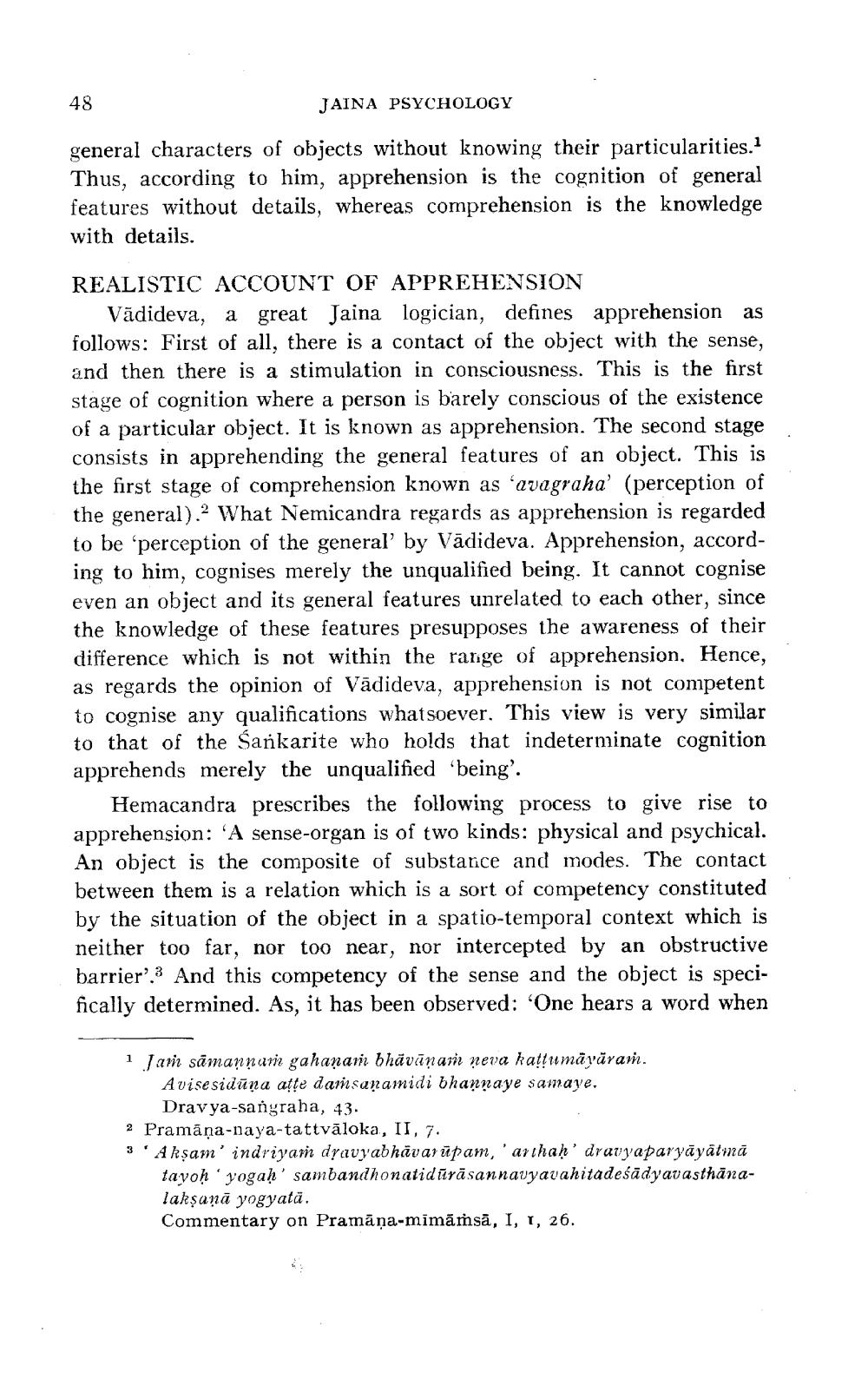________________
48
JAINA PSYCHOLOGY
general characters of objects without knowing their particularities.1 Thus, according to him, apprehension is the cognition of general features without details, whereas comprehension is the knowledge with details.
REALISTIC ACCOUNT OF APPREHENSION
2
Vădideva, a great Jaina logician, defines apprehension as follows: First of all, there is a contact of the object with the sense, and then there is a stimulation in consciousness. This is the first stage of cognition where a person is barely conscious of the existence of a particular object. It is known as apprehension. The second stage consists in apprehending the general features of an object. This is the first stage of comprehension known as 'avagraha' (perception of the general). What Nemicandra regards as apprehension is regarded to be 'perception of the general' by Vadideva. Apprehension, according to him, cognises merely the unqualified being. It cannot cognise even an object and its general features unrelated to each other, since the knowledge of these features presupposes the awareness of their difference which is not within the range of apprehension. Hence, as regards the opinion of Vadideva, apprehension is not competent to cognise any qualifications whatsoever. This view is very similar to that of the Sankarite who holds that indeterminate cognition apprehends merely the unqualified 'being'.
Hemacandra prescribes the following process to give rise to apprehension: 'A sense-organ is of two kinds: physical and psychical. An object is the composite of substance and modes. The contact between them is a relation which is a sort of competency constituted by the situation of the object in a spatio-temporal context which is neither too far, nor too near, nor intercepted by an obstructive barrier'. And this competency of the sense and the object is specifically determined. As, it has been observed: 'One hears a word when
1 Jam samannam gahanam bhavanam neva kaṭṭumayaram.
Avisesidūņa aṭṭe damsaṇamidi bhannaye samaye. Dravya-sangraha, 43.
2 Pramāṇa-naya-tattvāloka, II, 7.
3 Akşam indriyam dravyabhāvarupam, arthaḥ' dravyaparyāyātmā tayoḥ yogaḥ sambandhonatidūrāsannavyavahitadeśādyavasthana
lakṣaṇā yogyată.
Commentary on Pramāṇa-mīmāmsā, I, 1, 26.




